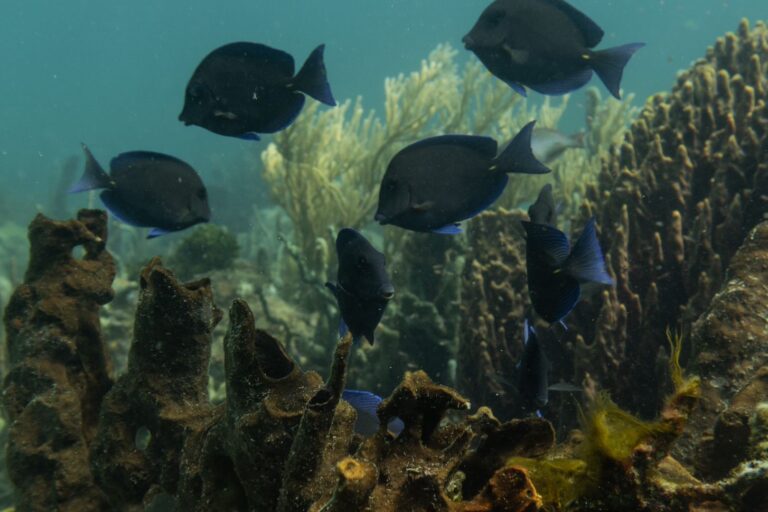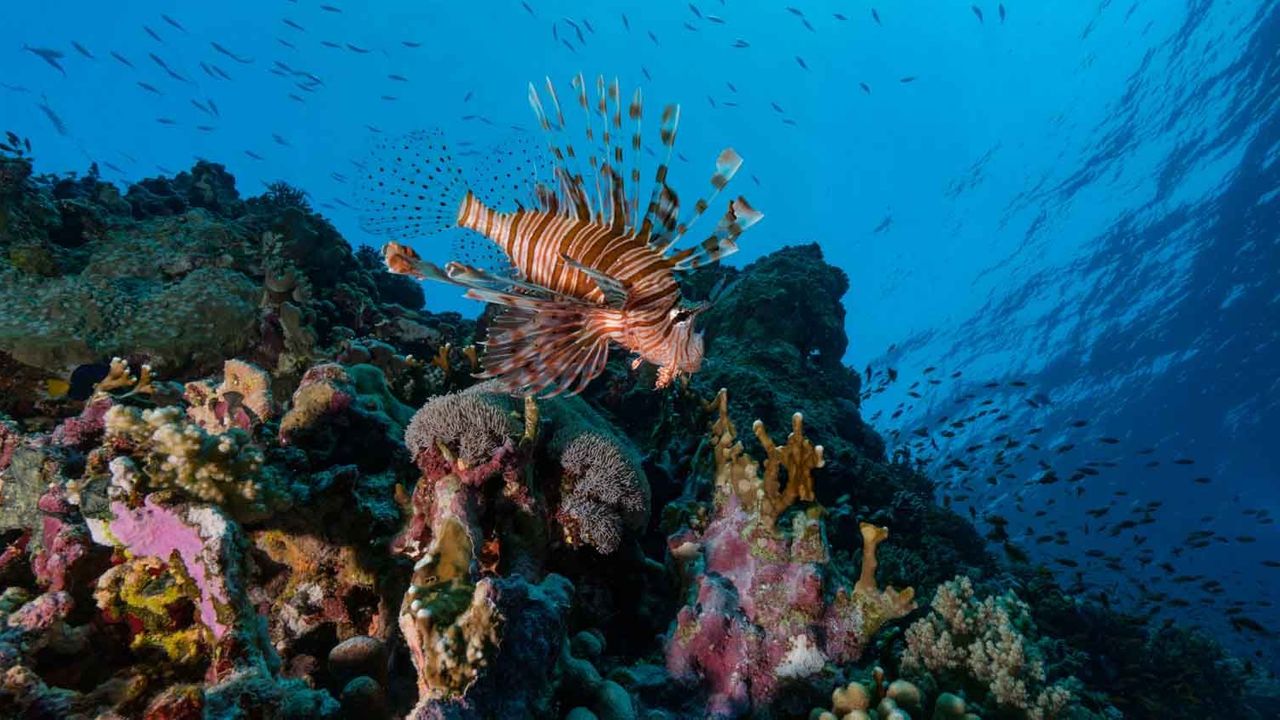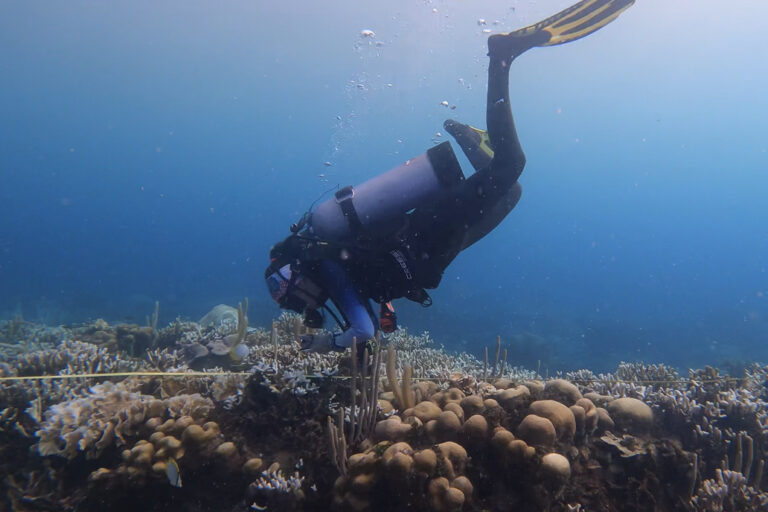During the hottest months of 2023, sea temperatures soared above average for over 12 weeks along Colombia’s Caribbean coast, resulting in significant repercussions for coral reefs.
Expeditions conducted in July by the non-governmental organization (NGO) Corales de Paz unveiled a noticeable increase in coral bleaching within monitored areas.
The NGO’s findings indicated that 25% of the hard coral colonies sampled in Rincón del Mar and 28.5% in Punta Venado displayed signs of bleaching, while off Varadero, the bleaching exceeded 40%.
These results underscore a growing trend of coral bleaching along Colombia’s Caribbean coast, as indicated by multiple expeditions conducted by Corales de Paz, an NGO dedicated to the conservation and restoration of the country’s coral reefs.

The NGO’s survey, conducted between July 27 and 31, 2023, covered coastal coral reefs off the towns of Rincón del Mar, Pico de Náufrago, and Canto del Mero.
The findings revealed that 25% of the hard coral colonies exhibited some degree of bleaching, with around 52% of the tissue in impacted colonies showing signs of moderate-to-high damage.
Coral bleaching, a consequence of rising ocean temperatures attributed to climate change, pollution, and ocean acidification, poses a severe threat to coral reefs, which are crucial for the survival of numerous species and contribute to the food security of coastal communities.
Coral bleaching occurs when stressed corals expel tiny algae that provide up to 80% of their nutrition. The expelled algae leave corals without a food source, potentially leading to their starvation and death if high-temperature conditions persist.
The loss of hard coral reefs has cascading effects, resulting in a significant loss of biodiversity and impacting the economy due to declines in tourism and fisheries revenue.
The July expedition to Rincón del Mar revealed that high temperatures in the Gulf of Morrosquillo triggered bleaching events.

Aqualink’s satellite data confirmed the elevated sea surface temperature of around 31°C (87.8°F). A type 1 alert was issued, indicating probable coral bleaching, and was later upgraded to type 2 in September, signifying significant coral bleaching and potential loss.
Corales de Paz shared their initial expedition results with environmental authorities, advocating for expanded monitoring efforts in nearby areas to inform stakeholders and enable corrective actions.
The lack of previous data for comparison prevented conclusive assessments of historical trends, emphasizing the need to address the current existence of coral bleaching.
The NGO extended its monitoring efforts to other areas along Colombia’s Caribbean coast, including Santa Marta and Varadero, as well as Providencia.
Providencia exhibited minimal damage, with only 7% of sampled corals showing signs of bleaching, indicating a high degree of resilience and recovery from the impact of Hurricane Iota in November 2020.
In Santa Marta, however, the situation was more complex, with 28.5% of corals at Punta Venado displaying signs of bleaching. Varadero, located at the mouth of the Canal del Dique, showed 40.4% of coral colonies with signs of bleaching, with the majority around 66.8% bleached.
Corales de Paz issued early warnings and recommendations for Varadero, leading to the temporary suspension of coral restoration projects to prevent further losses and allow ecosystems to recover. Restoration efforts aimed at increasing coral cover become futile when sea temperatures surpass normal levels.
Coral restoration involves growing coral fragments in nurseries through microfragmentation until they mature and can be transplanted back to restoration sites. However, this process adds stress to corals, exacerbating the challenges posed by increased sea temperatures.
Environmental authorities are urged to distribute information to project stakeholders, enabling them to temporarily halt activities during abnormal temperature conditions.
Despite the challenges of coral bleaching, healthy colonies persist, providing opportunities for monitoring and research on resilience against warming temperatures. Corales de Paz emphasizes the importance of reporting on coral conditions and encourages increased involvement in coral monitoring activities.
The NGO’s positive collaboration with regional environmental authorities highlights the significance of early measures in response to monitoring data, contributing to the global effort to protect coral reefs faced with the escalating threat of climate change.


